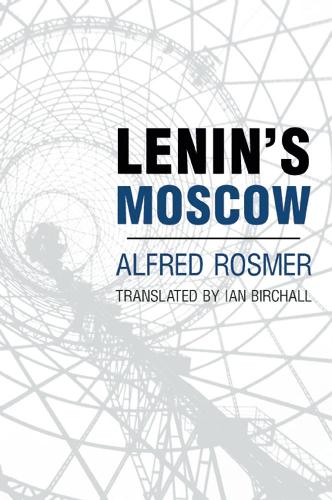
Lenin's Moscow
(Paperback, 3rd Revised edition)
Publishing Details
Lenin's Moscow
By (Author) Alfred Rosmer
Translated by Ian Birchall
Haymarket Books
Haymarket Books
19th July 2016
3rd Revised edition
United States
Classifications
General
Non Fiction
320.94709041
Physical Properties
Paperback
288
Width 154mm, Height 228mm
Description
Like thousands of others drawn to the promise and potential of the first workers' revolution, Alfred Rosmer found himself in Russia during the early years of Soviet rule. In this gripping political memoir of those days, Rosmer draws on his unique perspective to shatter the myths about the alleged totalitarianism of the Bolshevik party before the rise of Stalin.
Reviews
"Rosmer's book should be on the shelf of every militant." Christopher Hitchens Lenins Moscow remains a vital primary source for historians of the International, written by a participant witness. Rosmers account is clear and unpretentious, and can also serve as an introduction for those beginning to study the subject. Rosmers narrative sets the debates in their historical context, making us aware of the danger of repeating quotations from Lenin or Trotsky torn from the circumstances in which they were originally made. Ian Birchall, from the new preface
"Rosmer's book should be on the shelf of every militant." Christopher Hitchens Lenins Moscow remains a vital primary source for historians of the International, written by a participant witness. Rosmers account is clear and unpretentious, and can also serve as an introduction for those beginning to study the subject. Rosmers narrative sets the debates in their historical context, making us aware of the danger of repeating quotations from Lenin or Trotsky torn from the circumstances in which they were originally made. Ian Birchall, from the new preface
Author Bio
Alfred Rosmer (18771964) became a committed revolutionary syndicalist in the early years of the twentieth century, and was one of only a handful of French socialists who opposed the First World War from the outset. The victory of the Bolshevik revolution in Russia led him to become a communist. He attended the Second, Third and Fourth Congresses of the Communist International and was a member of its Executive Committee. He also played a leading role in the founding of the Red International of Labour Unions and was a member of the political bureau of the French Communist Party. Though he was expelled from the French Communist Party in 1924, he remained a convinced revolutionary until his death. Ian Birchall is a socialist historian and translator based in London. His books include The Spectre of Babeuf, Sartre Against Stalinism, A Rebels Guide to Lenin, and Tony Cliff: A Marxist for His Time.
